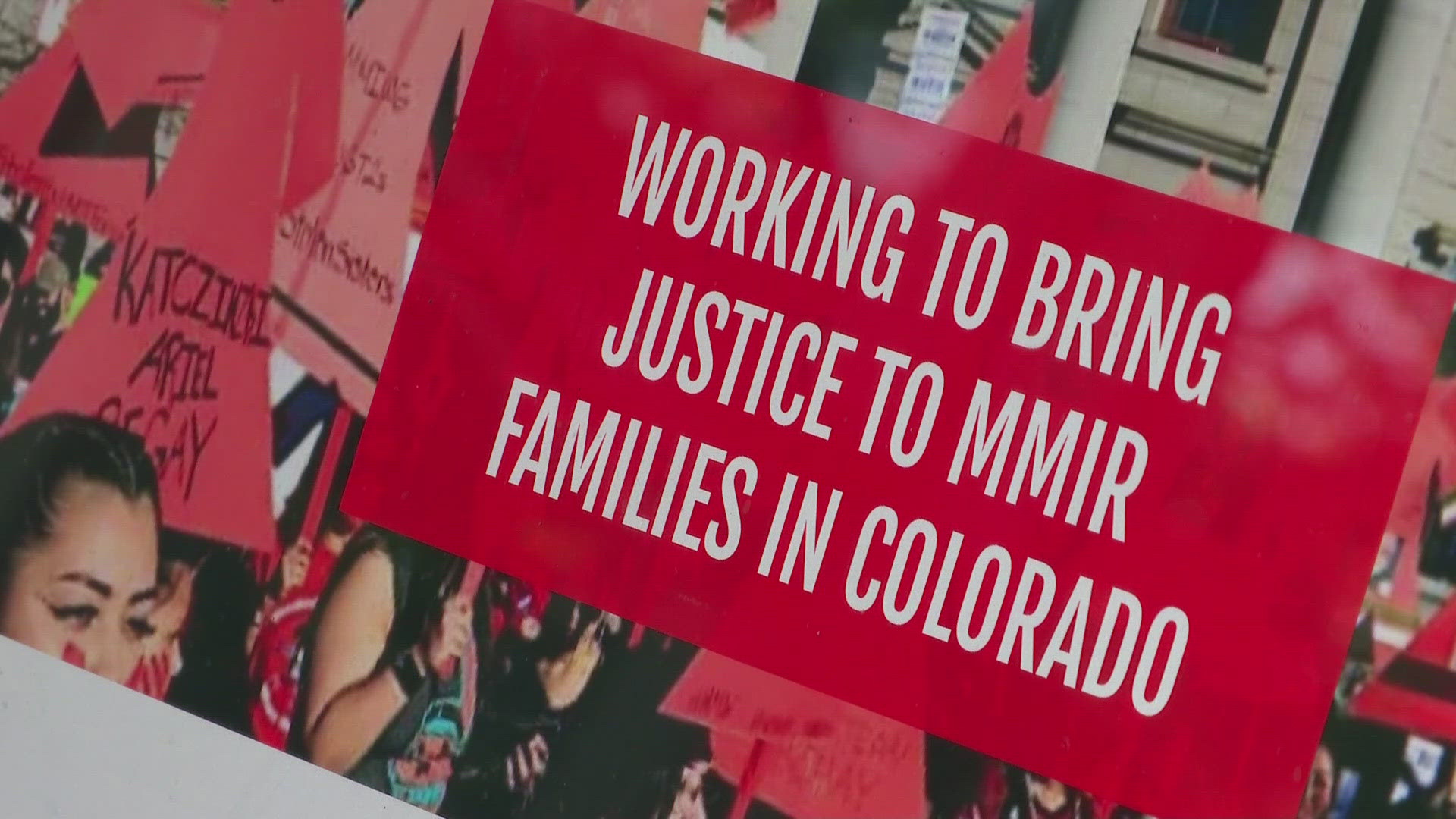DENVER — The U.S. government does not know how many people die in law enforcement custody each year, according to a report done by The Education Fund and the Project of Government Oversight.
While many people want to know how many people have died, others want to know who.
"Very much so," said Daisy Bluestar, a member of Colorado's Missing & Murdered Indigenous Relatives Task Force. "We had an individual ask us what we do because he believes his son was murdered in prison. I was thankful that he asked that question. "
That question led to so many more. Bluestar said the group reached out to the Office of the Liaison for Missing and Murdered Indigenous Relatives and the Colorado Division of Criminal Justice for data regarding indigenous in-custody deaths.
"What we're finding out is that if they are [collecting Native American in-custody death data], it hasn’t been released to anybody," she said. "So, we’re looking for that data and, to be honest, we’re not getting any answers."
According to the Colorado's Division of Criminal Justice website, by law, in-custody death data is required to be submitted. There's even a form that includes a person's race or ethnicity.
While there are some in-custody death stats available online, what that person's race, ethnicity, gender, age, or even cause of death doesn't seem to be readily available on the state's website.
"Having data is very important," Bluestar said. "We want all of our relatives to have justice regardless of the situation."
The task force is now asking the community for information on indigenous deaths while in custody at any Colorado jail or prison. Nationwide numbers have also been hard to come by. According to a report done by the Education Fund and the Project on Government Oversight, in-custody death data that has been collected has been incomplete, inaccurate and unclear.
Bluestar hopes with their push for more information, there will be a little more transparency.
"All it comes down to is respect all across the line," she said. "We're going to be pushing through the best that we can."
9NEWS did reach out to the Office of the Liaison for Missing and Murdered Indigenous Relatives and the Colorado Division of Criminal Justice about this data last week and have yet to hear back. Bluestar said if they can't get anywhere with state agencies, they plan to start reaching out to local law enforcement to try and get some numbers.
More from Jaleesa Irizarry:
SUGGESTED VIDEOS: Next with Kyle Clark

